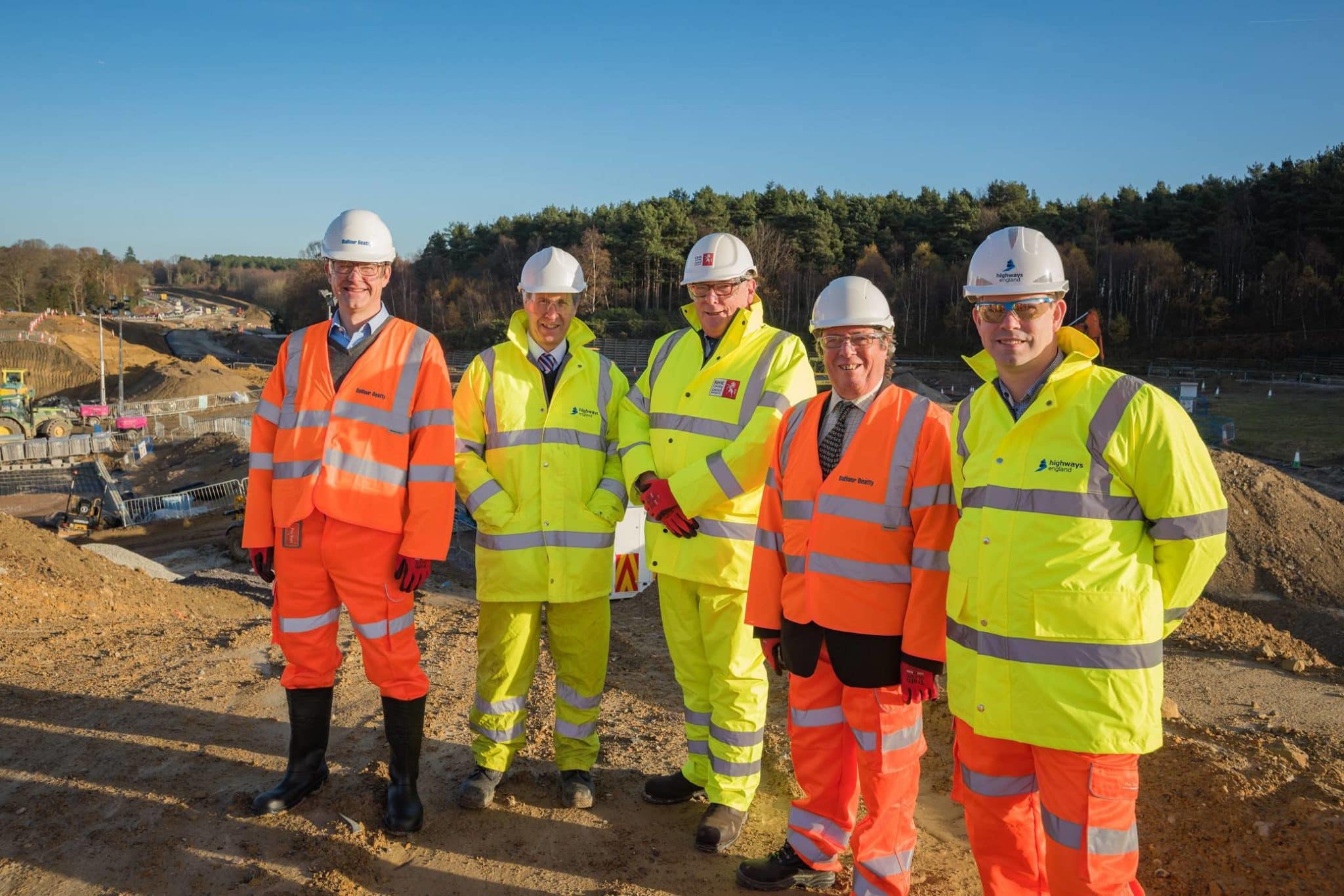Motorists hoping for relief early next year from congestion on the notorious A21 will have to wait a bit longer.
Work on the road widening at Pembury has been delayed for six months, it was disclosed on Friday, after 35,000 tonnes of soil contaminated with asbestos and heavy metals was discovered throughout the site. Asbestos is a serious health risk.
And the delay could be prolonged even further if there is significant rainfall over the coming months.
The £69.7million construction project began in April 2015, with the aim of ending the notorious bottleneck between Tunbridge Wells and Tonbridge by December, although delays earlier in the year pushed that target back to March 2017.
Now developers are suggesting ‘late summer 2017’ as the earliest possible date for opening the new 2.5 mile (4km) stretch of road.
Construction Program Manager for Highways England, Simon Elliott, said: “We found various pockets of asbestos throughout the whole site in March and April. It was under woodlands and in old brickworks. It appears someone simply made big holes in the ground to use as a tip.
“We contained it and removed it safely, but there was 35,000 tonnes of contaminated soil so the project was delayed by around three to four months.
“I’m confident that we now have a clean site. We are trying to catch up but it has also delayed the earthworks, which are very dependent on the weather,” meaning that a wet winter could delay the project even further.
MP for Tunbridge Wells, Greg Clark, who was shown around the construction site on Friday morning told the Times: “Obviously everyone is disappointed that the new dual carriageway is not happening by Christmas. But given the number of years that we’ve waited, I think people will still be relieved that it is well under way and recognise that we are almost there.
“When you discover asbestos, it is an unexpected thing and you have to deal with it safely.
“It’s a disgrace that some people just dumped toxic waste in years gone past.”
Tonbridge MP Tom Tugendhat said he was ‘disappointed’ with the delays, adding: “When finished, this scheme will bring huge benefits to our area, but the announcement of yet another delay is unacceptable when it should already be complete.
“The traffic situation, particularly at rush hour, is critical in south Tonbridge and local schools have reported a rise in lateness since the works began.”
Campaigners have worked for years to get the multi-million pound scheme approved but groups including The Woodland Trust objected to the destruction of 22 acres of ancient woodland. Although on Friday, Tunbridge Wells Borough Councillor Alan McDermott looked to reassure environmentalists that every tree that has been chopped down ‘will be replaced’.
The project is a mammoth undertaking with Highways England saying they have used approximately 20,000 tonnes of surface material by the end of October, enough to fill eight Olympic-sized swimming pools, to create the new carriageway on the A21. Around 95 per cent of the new road surface will have used recycled materials, mainly the old surface from the A21 and M25.
It was in 2001 that the then Transport Secretary Stephen Byers accepted the need to upgrade the road between Pembury and Tonbridge following years of campaigning by residents.
What is asbestos?
Asbestos is a natural fibrous rock that was widely used within homes and other buildings until 1999. It poses is a serious risk to health when it’s fibres become airborne and it is the biggest occupational disease risk to construction workers.
It was responsible for the death of over 2,500 construction workers in 2005 – more than two-thirds of cancer deaths in the industry.
The discoveries at the A21 site included crocidolite, which is more commonly known as ‘blue asbestos’, described as the ‘nastiest’ variety.








